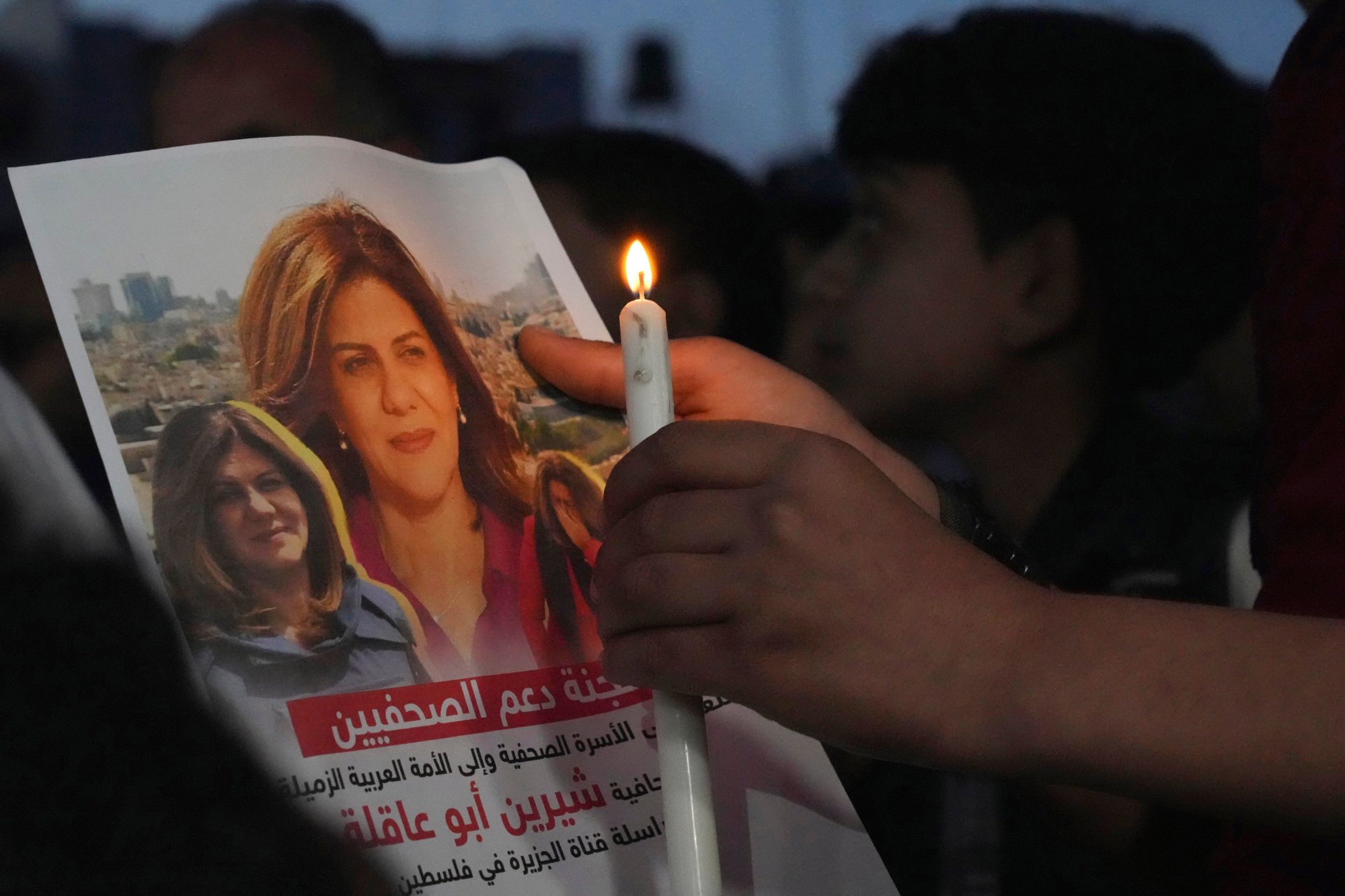
As journalists risk their lives in Gaza, the West looks the other way
- Journalists reporting on the war in Gaza struggle to stay alive as they face restrictions from Israel
- The Western media marginalises Palestinian suffering in a manner similar to coverage of the Iraq war
On April 11, the Committee to Protect Journalists (CPJ) stated that 95 journalists and media staff are among the more than 34,000 people killed since the war started on October 7. According to CPJ, 90 of them were Palestinians, three were Lebanese and two were Israelis.
As it receives support from the United States, Israel is restricting journalist access to combat areas. On March 31, Israeli forces bombed tents housing journalists at a hospital in Gaza. A day later, the Israeli parliament approved a law allowing the government to temporarily shut down the Qatari Al Jazeera channel. The Beiruit-based Al Mayadeen channel was banned in November.
After the bombing, an Egyptian journalist asked me how I see the media’s coverage of the war. The journalist, like many of his colleagues, was deeply angered by constant Israeli military attacks on reporters in Gaza, some of whom died not just while covering the war but while sheltering from it.

With their pro-Israel slant, prominent Western media outlets have presented a sanitised view of the war. Some outlets propagate the narrative that Israeli bombardment is all about saving people from the rule of Hamas. They demonise Gazans as “unpeople”– as if Israel has a moral obligation to exterminate them. The media has thus fallen to the same faults as when reporting on the Iraq War.
In going after journalists, Tel Aviv is following the same path that the US took during the war in Iraq – suppressing casualty figures. Israel has endeavoured to impose severe restrictions on non-Western transnational TV channels, such as the pan-Arab Al Jazeera and Al Mayadeen, whose around-the-clock coverage has focused on the death toll and carnage.
Even though I don’t necessarily fully agree with all of Al Jazeera’s coverage, the channel has been a powerful force in offering a diverse outlook on the Gaza war. While much of the Western media seems to be converging around a pro-war stance, Al Jazeera and the media in other countries have depicted the war as illegal while also presenting more human-focused coverage.
Son of veteran correspondent is fifth member of his family killed by strikes on Gaza
Mobilisation of support for the war is based on propaganda that overlooks Palestinians’ rights to statehood based on pre-1967 borders. Media outlets in the West have served as propagandists within the political and ideological context of Western imperialism, with much of their coverage tamed down or bullied into silence on issues such as the Israeli military’s use of food as a weapon.
Within the parameters of what’s true and what’s false, many in the Western media have interpreted the Gaza war through the eyes of Israeli soldiers. Their lopsided, pro-Israel coverage of the war has proved that we live in the time of a clash of civilisations.
Since the end of the Cold War, the Western media has endeavoured to dominate the coverage of wars and conflicts that have broken out around the world. This was crystal clear from how many people relied on the Western media during the Gulf War, the wars in the former Yugoslavia and the US war in Afghanistan.
The Western media’s biased coverage of the Gaza war raises questions about notions of objectivity, balance and accuracy as well as journalistic ethics and standards. I hear of no talk today among Arabs of a “CNN effect”, as when CNN played a key role in informing people about Saddam Hussein’s invasion of Kuwait, but of an “Al Jazeera and Al Mayadeen effect”.
f Arabs mainly depended on the Western media, they might have been largely uninformed about the war – about the slaughter of Palestinians.
Mohamed El-Bendary, an independent researcher based in Egypt, taught journalism in the United States and New Zealand

